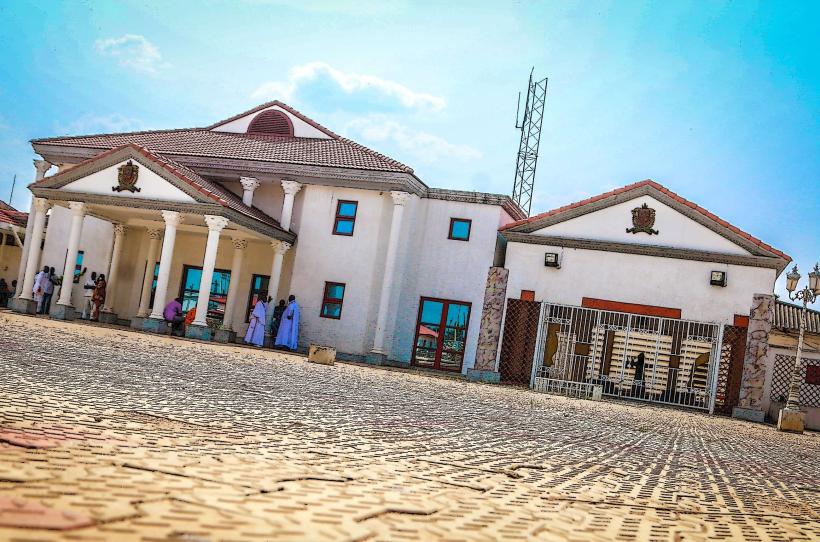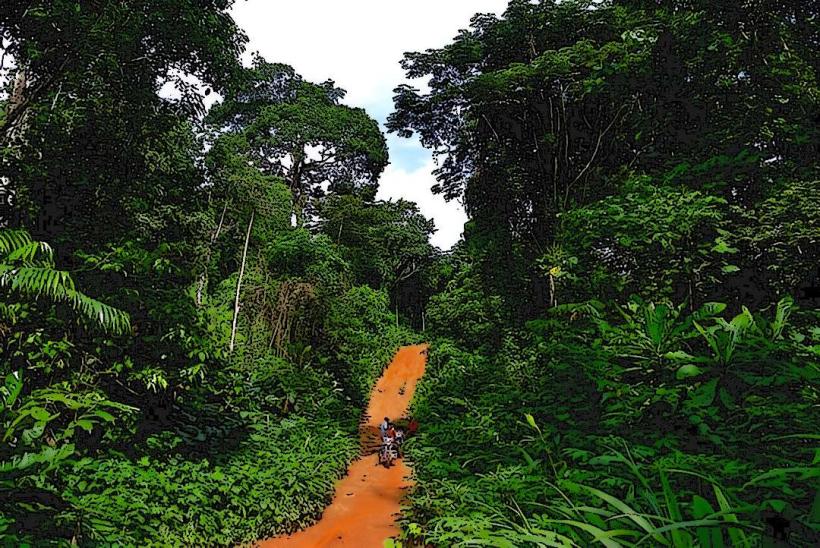Information
Landmark: Ovia RiverCity: Benin City
Country: Nigeria
Continent: Africa
Ovia River, Benin City, Nigeria, Africa
The Ovia River is one of the major rivers in southern Nigeria, primarily flowing through Edo State. It is an important waterway for both ecological and economic reasons in the region. Here's a more detailed look at the Ovia River:
1. Geography and Course
The Ovia River originates in the central part of Edo State, near the town of Uromi, and flows southward, eventually emptying into the Benin River, which is a tributary of the Niger River. The river meanders through several towns and villages in Edo State, including Benin City, the state capital. The river is an essential feature of the landscape, influencing both the natural environment and human settlement in the region.
2. Tributaries
The Ovia River is fed by several smaller tributaries, which contribute to its flow and make it a significant water source. These tributaries include smaller streams and rivers originating from the surrounding forested areas and hills, which feed into the Ovia River, increasing its volume as it progresses toward the south.
3. Ecological Importance
The Ovia River plays a key role in the local ecosystem. The river and its surrounding wetlands are rich in biodiversity, supporting a variety of aquatic and terrestrial species. The river provides habitats for fish, amphibians, and water birds, and its floodplains are often used by various plant species adapted to wet conditions.
4. Agricultural Impact
The Ovia River and its floodplains are crucial for agriculture in the region. The fertile lands along the riverbanks are ideal for farming, with crops like cassava, yam, maize, and rice being cultivated in the area. The river's waters are also used for irrigation purposes, particularly during the dry season, ensuring that agricultural activities can continue throughout the year.
5. Economic Significance
The Ovia River is essential for the local economy in several ways:
Fishing: The river supports a thriving fishing industry. Local fishermen rely on the river's abundant fish stock, and fish from the Ovia River contribute to the diet and economy of the surrounding communities.
Transportation: In the past, the Ovia River has served as an important transportation route for goods and people, particularly before the widespread use of roads and vehicles. While its role as a transportation hub has diminished over time due to modern infrastructure, the river still remains an important route for local movement.
6. Cultural Significance
For the people living along the Ovia River, the river holds cultural and spiritual importance. Like many rivers in Nigeria, the Ovia River is often associated with local traditions, stories, and rituals. Communities that live near the river may hold annual festivals or other cultural events that celebrate the river and its role in their lives.
7. Flooding and Environmental Concerns
Like many rivers in Nigeria, the Ovia River is prone to seasonal flooding, especially during the rainy season. While flooding can be beneficial for agriculture by replenishing the soil with nutrients, it can also lead to destruction of crops, homes, and infrastructure in the floodplain areas.
In addition to seasonal flooding, the river faces environmental challenges from human activities, such as illegal logging, pollution, and overfishing. These activities threaten the water quality and biodiversity of the river, and there are concerns about the long-term sustainability of its ecosystems.
8. Hydroelectric Potential
There have been discussions about the potential for hydroelectric power generation from the Ovia River, as its flow could be harnessed for energy production. However, the development of hydroelectric projects would need to consider the environmental impact on the river’s ecosystem, local communities, and the surrounding natural resources.
9. Conservation and Protection
Efforts to protect the Ovia River's ecosystem are essential, particularly as the region grows in population and industrial development. Conservation initiatives may focus on improving water quality, preventing deforestation, and promoting sustainable fishing and agricultural practices. Local authorities and environmental organizations are increasingly aware of the need to balance economic development with the protection of the river's natural resources.
Conclusion
The Ovia River is a vital natural resource in Edo State, Nigeria. Its ecological, agricultural, economic, and cultural importance makes it a cornerstone of life for the people living along its banks. However, the river faces various challenges, including environmental degradation, pollution, and the pressures of modern development. It is crucial for sustainable management and conservation efforts to be prioritized to ensure that the Ovia River continues to benefit the region for generations to come.






